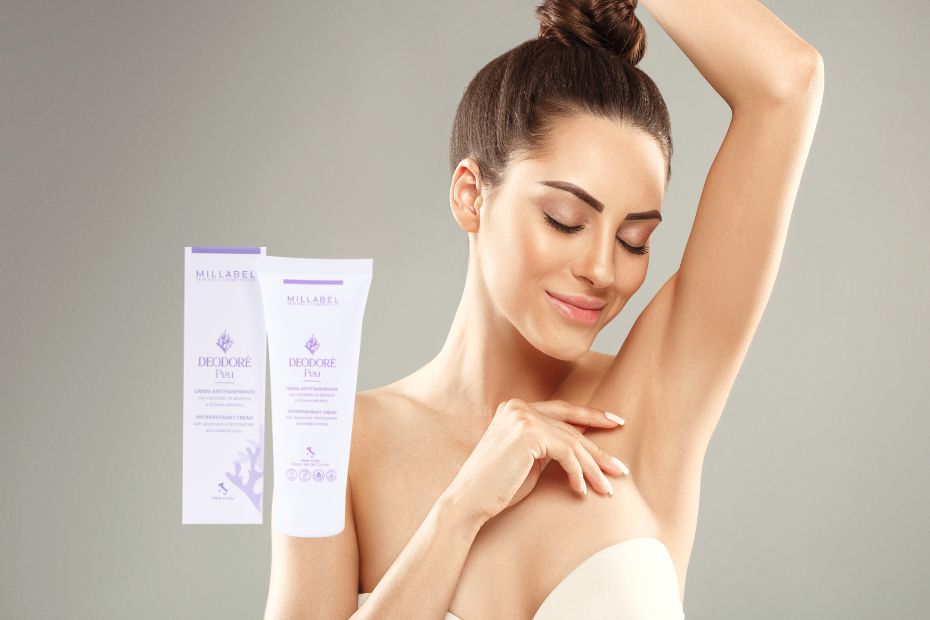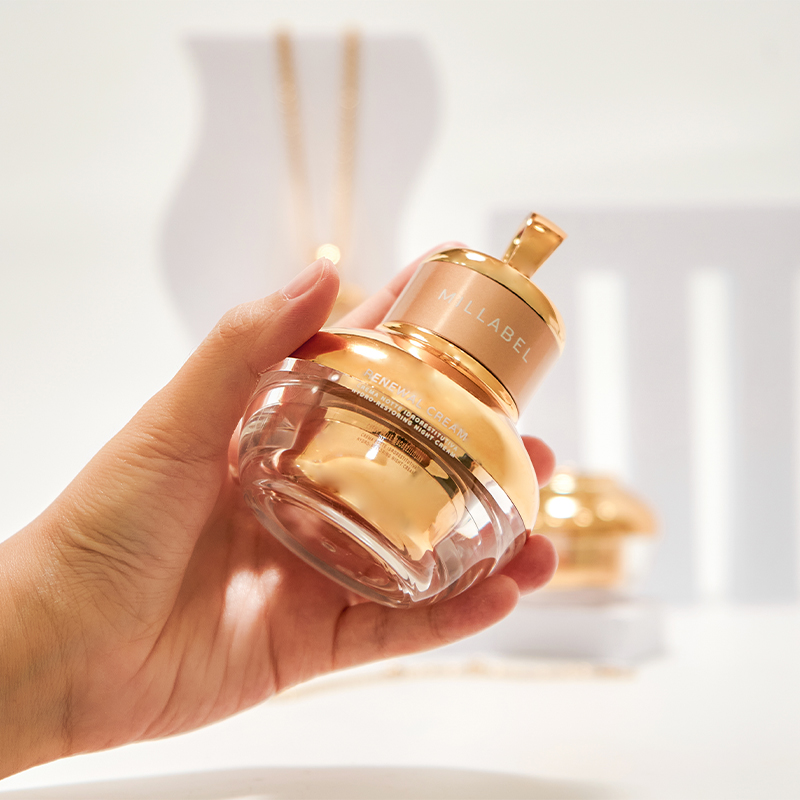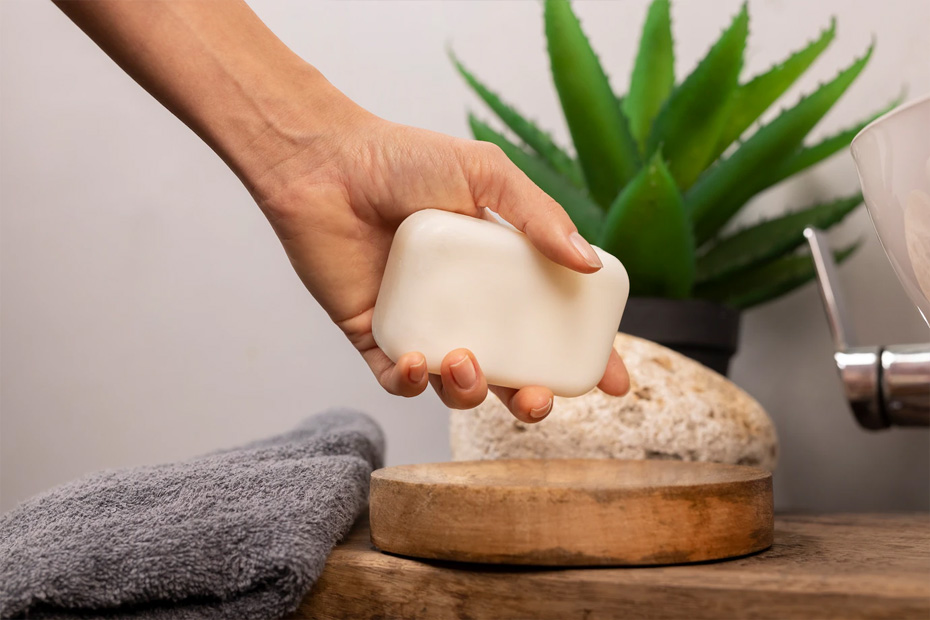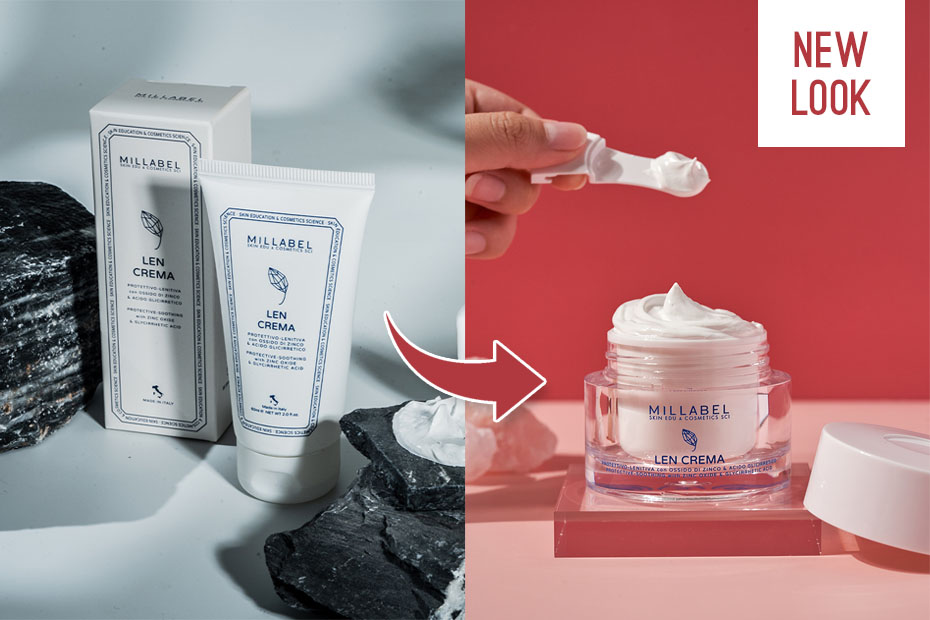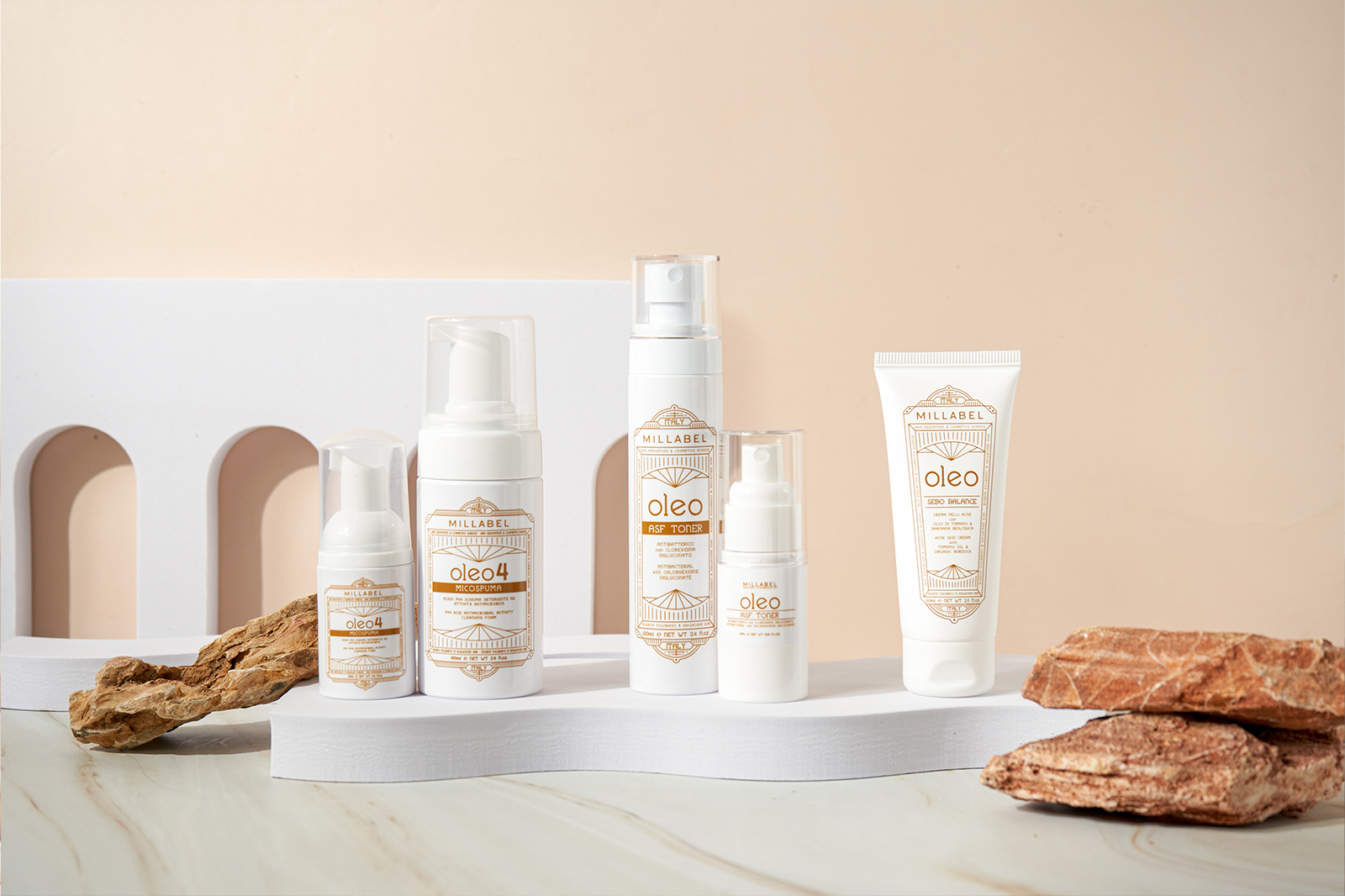Sweaty and sticky perspiration can be very annoying, but it is a necessary mechanism for the body to regulate temperature and metabolize waste. Sweat glands are like air conditioners; they secrete sweat when body temperature rises, and the evaporation of this moisture carries away heat, maintaining a stable body temperature. Although it may not be noticeable, humans are constantly secreting sweat. Even when lying still, the amount of water excreted from sweat glands is at least 500cc per day, and during peak summer, sweating can reach 4-5 liters. With the recent greenhouse effect and global warming, the amount of sweat has been increasing, which may explain why many people “sometimes” or “often” have issues with sweating.
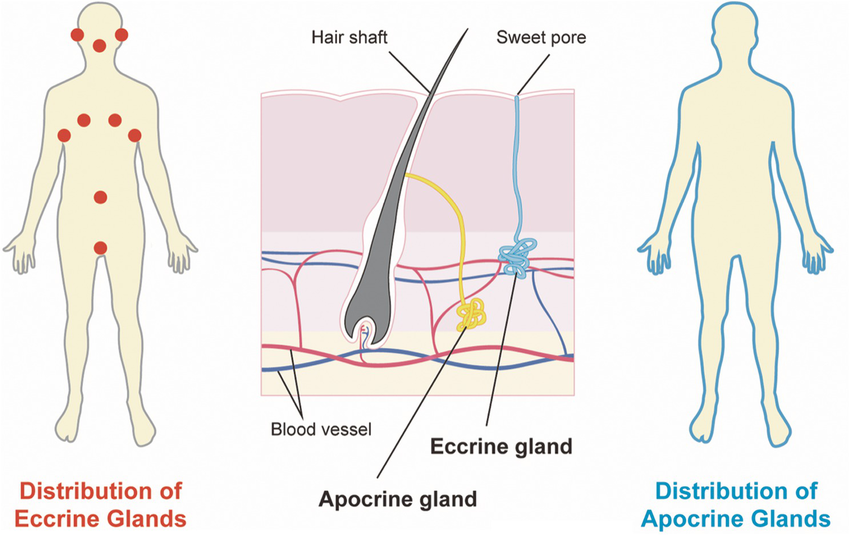
To avoid emitting odors due to sweating, it is essential to understand the causes of body odor. When the body needs to dissipate internal heat to maintain normal body temperature, sweat glands in the dermis produce sweat that is secreted to the surface of the skin. Generally, men’s sweat glands are more active than women’s. Sweat glands can mainly be divided into the following two types:
- Eccrine glands: These are the smaller sweat glands that are responsible for regulating body temperature.
- Apocrine glands: These are the larger sweat glands that are typically associated with body odor.
Causes of Body Odor
Sweat itself is generally odorless or only has a faint smell.
Body odor occurs when sweat is broken down by bacteria on the skin’s surface, particularly the organic components like proteins and fats, resulting in odor-causing substances.
Therefore, body odor typically originates from areas where apocrine glands are distributed.
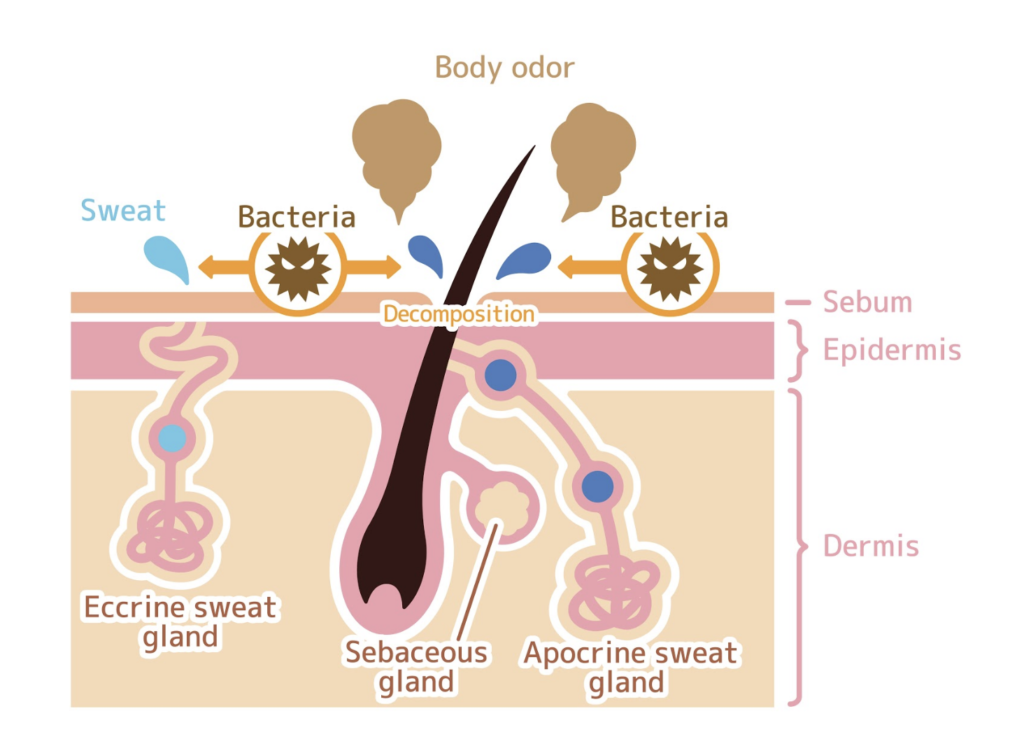
Difference between Antiperspirants and Deodorants
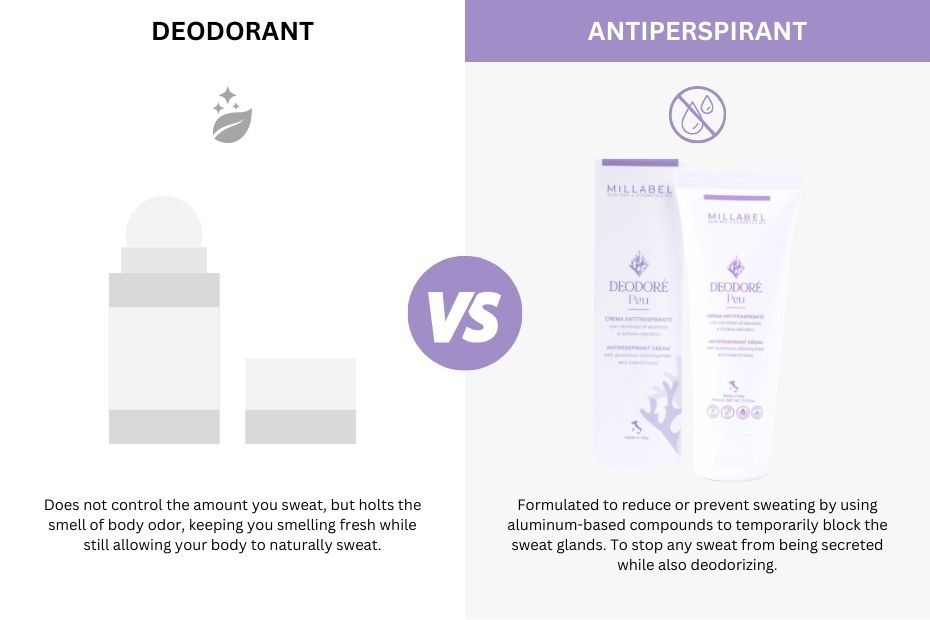
The main difference between antiperspirants and deodorants is whether they inhibit sweat secretion. Antiperspirants usually contain aluminum and zirconium compounds, which temporarily block sweat glands using aluminum or zirconium salts to inhibit sweating and prevent body odor. Once the antiperspirant is stopped, the original sweating pattern resumes. Generally, the higher the aluminum compound content in an antiperspirant, the better its effectiveness.
Deodorants, on the other hand, do not contain the aluminum or zirconium commonly found in antiperspirants and do not inhibit sweat secretion.
Mechanism of Antiperspirants
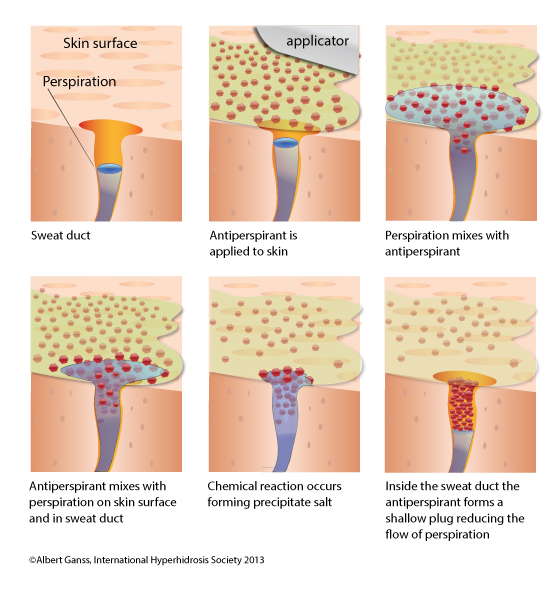
When applied to the skin’s surface, the antiperspirant ingredient (aluminum salt) dissolves in the moisture or sweat on the skin. The aluminum salt, in its Lewis acid form, interacts with water to form a gel layer, trapping water molecules and creating small temporary “plugs” at the tops of sweat glands. This action closes the sweat gland openings, reducing the amount of sweat that reaches the skin’s surface. Bathing and washing remove the antiperspirant gel layer, restoring the original sweating state. Aluminum chloride and aluminum chlorohydrate are among the earliest and most widely used antiperspirants, often recommended by the EU for over-the-counter use, with allowable concentrations up to 15%, 20%, or 25%.
Since antiperspirants only act on the skin’s surface and do not penetrate beyond the stratum corneum, the aluminum salts absorbed with sweat are shed through washing or natural skin exfoliation. This prevents pore blockage and alleviates concerns about aluminum salts being absorbed into the body and causing cancer.
Choosing Between Antiperspirant Sprays and Creams
Antiperspirants come in spray and cream forms. Some antiperspirants use a roll-on design, which repeatedly comes into contact with bacteria in the underarm area, so it’s advisable to use them up quickly.
Sprays
Often contain alcohol or other volatile substances to give the skin a drier feel. However, many people are allergic to alcohol, which can also irritate the skin.
Cream-based
Usually have a higher concentration of aluminum salts compared to sprays, making them more effective and longer-lasting.
The Right Antiperspirant Deodorant Cream for You
Choosing the right antiperspirant and using it properly can help you feel fresh and comfortable throughout the summer and autumn seasons.
Millabel Deodore Peu Crema, the perfect solution to keep you feeling fresh and confident all summer and autumn long. This deodorant cream not only effectively controls perspiration but also neutralizes odor, ensuring you stay dry and smell great throughout the day.
Deodore Peu Crema is formulated to provide active protection against body odor while respecting the skin’s natural balance. It contains aluminum chlorohydrate, which controls perspiration and reduces bacteria levels that cause bad odors. Iceland Moss extract offers antiseptic, deodorant, soothing, and emollient properties. The formula combines the antimicrobial action of aluminum chlorohydrate with the benefits of Iceland moss and organic Bambusa vulgaris, effectively fighting bad odors and regulating sweating for a prolonged anti-odor effect. Its light, non-greasy texture leaves no residue on the skin.
Active Ingredients:
- Aluminum Chlorohydrate
- Organic Bamboo Hydroglyceric Extract
- Cetraria Islandica Hydroglyceric Extract
Benefits of Antiperspirants
Antiperspirants reduce sweat secretion and bacterial growth, which also helps reduce body odor and underarm odor. However, if you have already started sweating and need to quickly reduce body odor or underarm odor, it is recommended to dry the sweat, change into dry clothes, and use an antibacterial body deodorant. This can provide quicker results, although body deodorants generally do not have antiperspirant effects, so sweating will continue.
Antiperspirants can ‘reduce’ sweat secretion but not ‘completely inhibit’ it. A small amount of sweating in the applied areas is normal, as there are no products that can completely stop sweating. Antiperspirants are not immediately effective; sometimes, continuous use is needed for a period for the aluminum salts to accumulate sufficiently to form effective plugs. Generally, continuous use for 3-5 days can achieve good results.
Application Areas and Precautions
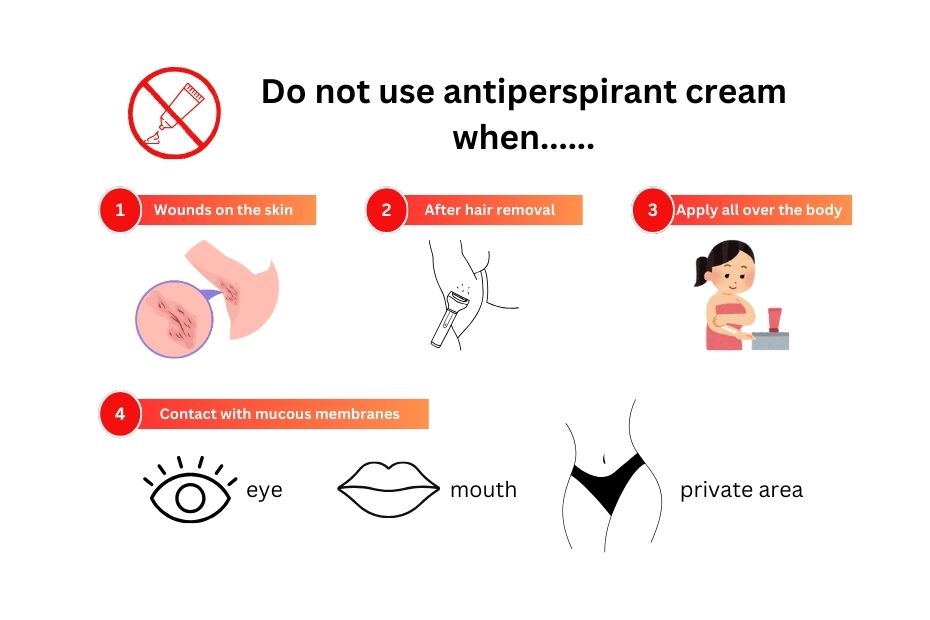
Antiperspirants and deodorants are typically only suitable for a few areas such as underarms and elbows and are not intended for full-body use, especially on the face where the skin is more prone to allergies. Consumers should avoid applying antiperspirants or deodorants on damaged skin or freshly shaved skin to prevent irritation. When using a new product, it is advisable to test it on the inner arm first; if there is no allergic reaction, continue to use it.

Deodore Peu Crema has undergone rigorous dermatology patch testing to ensure its safety and effectiveness. The results have confirmed that it is safe for use and will not cause sensitivity or irritation to the skin. You can confidently use Deodore Peu Crema, knowing it has been thoroughly tested and proven to be gentle on all skin types, including sensitive skin.
